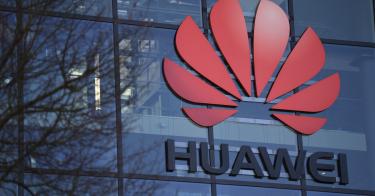The British government is expected to announce plans to phase Huawei out of the U.K.’s 5G telecommunications network, following a scheduled meeting of the National Security Council later today.
The Security Council meeting will discuss a new report from GCHQ’s National Cyber Security Centre which will highlight security risks to Britain’s 5G network posed by Huawei, China’s largest telecommunications company. The highly anticipated announcement will be a stunning U-turn by Downing Street, reversing an earlier decision in January to give Huawei a 35 per cent stake in the U.K.’s 5G infrastructure.
Boris Johnson is right to give Huawei the boot. As I wrote for The Telegraph back in early February, “It beggars belief that one of the world’s freest countries would hand over a big stake in its telecommunications system to a government that outlaws democracy, operates a vast surveillance state, and imprisons hundreds of thousands of its own citizens in labour camps.”
If given the opportunity China would use its 5G footprint to spy on the U.K. and also exert an extraordinary degree of political and economic influence in the world’s fifth largest economy. With good reason, nations such as the United States, Japan and Australia have refused to go down the Huawei path, and have urged the U.K. not to do so.
Meeting with senior British officials in Washington earlier this year, I was stunned to hear the naïve arguments that any security risks posed by Huawei could be contained by U.K. security services. That approach has been utterly debunked, with former heads of MI6 now queuing up to warn of the dangers that Huawei poses, and GCHQ painting a very different picture to the one it presented just six months ago.
The British about face will be greatly welcomed in the United States, where Huawei is subject to strict and hard-hitting new sanctions imposed by the Commerce Department, which make it next to impossible for the high technology giant to access U.S. made semiconductors.
There are grave concerns in both the White House and the United States Congress over Huawei’s infiltration of the U.K., and President Trump’s vocal dismay over Downing Street’s earlier Huawei decision was widely shared by U.S. legislators, including leading Republican Senators such as Tom Cotton of Arkansas, who have been key supporters of Brexit and a U.S.-U.K. free trade deal. The Huawei issue had become the single biggest sticking point in the Anglo-American Special Relationship, and had prompted an early rift between the White House and the Johnson government.
Sustained U.S. pressure, the fallout from China’s secretive, deceitful and appalling response to the global outbreak of COVID-19, combined with a stunningly successful Parliamentary rebellion, all created a perfect storm that has made conditions far more difficult today for Huawei to operate in the United Kingdom.
In the House of Commons, a wide coalition of Conservative backbench MPs, including former Leader of the Conservative Party Sir Iain Duncan Smith, former Environment Secretary Owen Paterson, former Home Secretary David Davis, and the present Chairman of the Foreign Affairs Committee, Tom Tugendhat, pressed for the Prime Minister to rethink the government’s approach to Huawei. Their highly principled stance has succeeded in helping steer the PM in a different direction.
There can be no doubt that the new British posture towards Huawei will be a huge strategic blow to Beijing. The Chinese Communist government has invested a great amount of political capital in its efforts to shape both political and public opinion in the U.K. over Huawei, which to all intents and purposes is a subsidiary of the Chinese state. Fortunately that effort has come to naught.
The Chinese understand that a reversal of fortune in Britain will have major implications for how the rest of Europe deals with Huawei. The Germans, for example, are close to making a decision on the future of Huawei’s role in Europe’s largest telecommunications market. Berlin has been closely watching Britain’s stance on the issue and Chancellor Angela Merkel will likely go down the same path as her British counterpart, with mounting anti-Huawei sentiment in the Bundestag. We could well be witnessing the beginning of the end of Huawei in Europe, which will be a massive setback for China’s Communist Party leadership.
Boris Johnson’s robust move on Huawei will send a clear signal to Beijing that it is indeed no longer business as usual with China, as the Foreign Secretary Dominic Raab proclaimed in April. China’s rulers are already threatening retaliation against the U.K. if Huawei is ditched. Britain must not give in to any intimidation from Beijing. Huawei should be eliminated completely from Britain’s entire telecommunications infrastructure as soon as possible. Every year that Huawei remains embedded in the U.K. is a security risk that is not worth taking.
In rejecting China over Huawei, and confronting Beijing over Hong Kong, Brexit Britain is now leading on the global stage, and must play a key role in the development of an international consortium of national governments and private companies in the free world that can develop alternatives to China’s dominance of 5G technology. It is time for the British Lion to roar in the face of the Chinese dragon, and be assertive in defending Britain’s security and interests against an increasingly aggressive and menacing foe.
This piece originally appeared in The Telegraph




